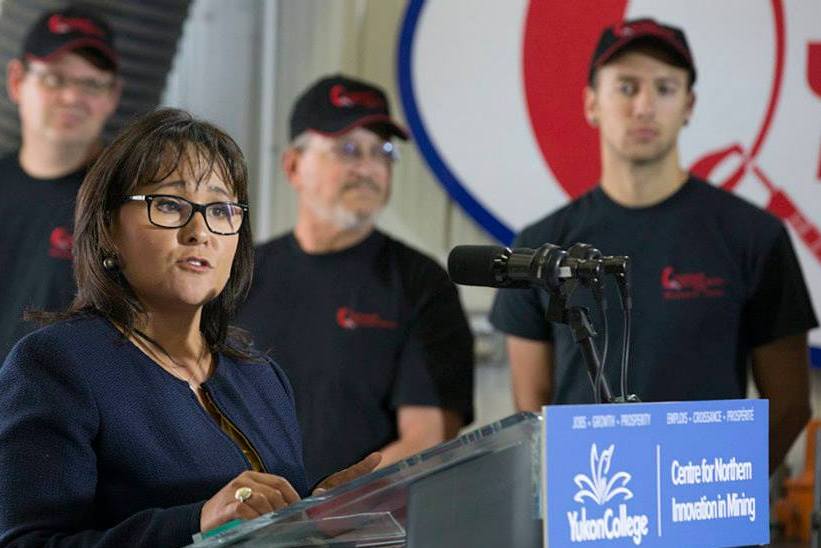Federal Environment Minister Leona Aglukkaq wrote recently to the provinces, criticizing them for not providing enough information about how they will combat climate change. She says Ottawa needs that data in order to submit Canada’s emission reduction plans to the United Nations. This is politics at its crudest. Aglukkaq is a minister in a government that has earned a well-deserved international reputation as deadbeat, laggard and obstructionist when it comes to taking action on climate change — yet she chooses to criticize those who are trying to accomplish something.
Aglukkaq’s letter arrived just prior to a scheduled announcement by the premiers of Ontario and Quebec on April 13 that they would sign a cap and trade accord which will attempt to have industry in their provinces reduce carbon emissions. The ink was barely dry on that agreement when federal Finance Minister Joe Oliver opposed it as “negative for the economy… negative for consumers and taxpayers.”
Aglukkaq’s epistle also preceded a meeting of provincial and territorial premiers in Quebec City on April 14. They gathered to pool their various climate change initiatives into something resembling a unified plan. The premiers are doing this in the absence of federal leadership from the Conservatives, who oppose pretty well anything that would reduce Canada’s carbon emissions.
Scientists predict disaster
The Intergovernmental Panel on Climate Change (IPCC), a blue ribbon group of climate scientists, has issued a series reports regarding climate change. They say that it is occurring as a result of human activity and that the situation is growing increasingly urgent. They believe, for example, that global warming is melting glaciers which will, in turn, cause sea levels to rise by as much as a metre by the end of this century, inundating many of the world’s coastal cities.
Deny, deny, deny
The first IPCC report was issued in 1990. At the time, Stephen Harper was an executive assistant to Reform Party MP Deborah Grey. Twelve years later, in 2002, Harper became leader of the Canadian Alliance. The IPCC expertise had been available for well over a decade by then but according to a list of quotes assembled by the Climate Action Network Canada, this is what Harper was saying about climate change in 2002:
“We can debate whether or not… CO2 does or does not contribute to global warming. I think the jury is out.” (Interview on the Rafe Mair Show, CKNW Radio Vancouver, November 29, 2002)
[The Kyoto Accord is] based on tentative and contradictory scientific evidence about climate trends.” (Stephen Harper, Canadian Alliance fundraising letter, Fall 2002)
Heaping scorn on solutions
By 2008, Harper was the Prime Minister in a minority government. The Conservatives ran a barrage of negative ads in the election heaping scorn on Liberal leader Stephan Dion for proposing a carbon tax whose earnings would not go into general government revenues but which would be returned to people in the form of lower taxes elsewhere and in strategic green investments.
Despite repeated attacks by Conservatives on the carbon tax, British Columbia has successfully introduced one on a provincial level. On the day prior to the premiers’ meeting in Quebec City on April 13, 2015, B.C.’s Christy Clark was invited to speak to a World Bank audience about how her province had done it.
Harper and others, including Albert Premier Jim Prentice, continue to promote Canada as an “energy superpower” and refuse to pursue a reduction in emissions from the tar sands. However, the mood is shifting and Harper is beginning to feel the pressure. Polls show that Canadians believe climate change is occurring, that it is produced by the action of humans, and that governments should do something about it. Business-friendly newspapers, including The Globe and Mail, are carrying opinion pieces such as one by the Conference Board of Canada, an establishment think tank, calling for a carbon tax.
Grilled by Mansbridge
In a year-end interview with CBC TV’s Peter Mansbridge, the Prime Minister was clearly on the run. Under pressure from Mansbridge, Harper admitted that climate change is a “significant threat.” In that case, Mansbridge asked, why don’t you propose something?
Harper said he was and pointed to Alberta’s “regulatory environments” — which, in fact, does not include either a hard cap or a target for emissions. He said, however, that this is a model that could be built upon.
“This is the carbon levy?” Mansbridge asked. At that point (in the parlance of people in the farm country where I grew up), the prime minister squirmed around as though he had gravel in his shorts. “This is the tech fund price carbon levy and the, the, it’s not a levy, it’s a price and there’s a tech fund in which, in which the private sector makes investments.”
Harper also told Mansbridge that, “We are phasing out the use of traditional dirty coal.” There is rich irony here. It is Ontario that has phased out its coal-fired electricity plants and now want to take credit for it, implying that it was a national initiative.
Deadbeat Conservatives
Canada has nothing on the table for the UN climate talks in Paris. In 2009, the Harper government committed to reducing carbon emissions to 17 per cent below 2005 levels by 2020. However, even the federal environment commissioner says current federal measures will have little effect on emissions by 2020.
The provinces and territories have, by default, been forced to provide the leadership in curbing emissions but they really cannot do it on their own. Canadians and the world are watching and soon Mr. Harper will have nowhere to hide.




